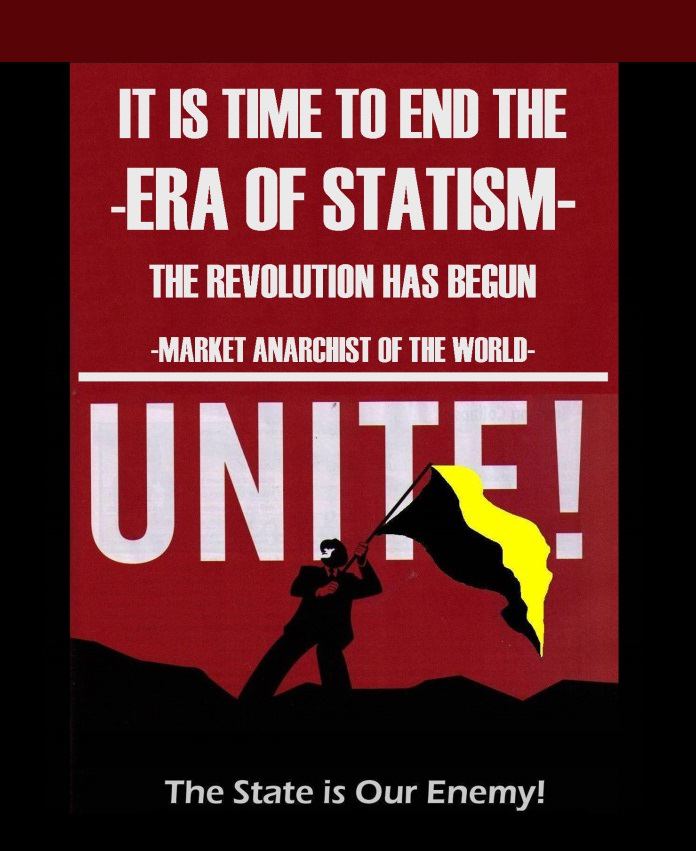Obama gave a political speech and you know what that means? It means the Internet is abuzz with his supporters cheering his speech and his opponents decrying his speech. His opponents have been brining up a part of his speech that strongly mirrors that famous one given by Elizabeth Warren some time ago. Basically Obama is trying to explain how all successful people became successful because of the government:
There are a lot of wealthy, successful Americans who agree with me — because they want to give something back. They know they didn’t — look, if you’ve been successful, you didn’t get there on your own. You didn’t get there on your own. I’m always struck by people who think, well, it must be because I was just so smart. There are a lot of smart people out there. It must be because I worked harder than everybody else. Let me tell you something — there are a whole bunch of hardworking people out there. (Applause.)
If you were successful, somebody along the line gave you some help. There was a great teacher somewhere in your life.
This part of his speech is true, nobody became successful by themselves. One needs consumers to buy their products or services before they can become successful. Unfortunately, as is common for Obama, his grain of truth is used to create a bucket of lies:
Somebody helped to create this unbelievable American system that we have that allowed you to thrive.
Is this the same unbelievable American system that diverts ungodly amounts of money into the construction of drones, aircraft carriers, and submarines so we can trot around the world and kill people who aren’t like us? Is this the same unbelievable American system that protects the interests of favored businesses from competition? Is this the same unbelievable American system that will murder you if you disobey one of its decrees?
The one thing our unbelievable American system hasn’t done is allow us to thrive… unless you’re one of the state’s cronies of course.
Somebody invested in roads and bridges.
I think he mean somebody paid for the roads and bridges at gunpoint because the state has claimed a monopoly on the construction of transportation infrastructure. People didn’t invest in those roads and bridges, they paid for them because they were forced to, they were threatened with kidnapping and detainment in a cage if they didn’t “invest” in the state monopoly.
If you’ve got a business — you didn’t build that.
Obama is correct, most businesses were physically built by private construction companies. The success of those businesses was made possible by consumers. An entrepreneur came up with the idea and figured out how to execute it. In fact the only real hinderance was the state that demanded a huge portion of the business owner’s wealth in exchange for “protection” from itself.
Somebody else made that happen. The Internet didn’t get invented on its own. Government research created the Internet so that all the companies could make money off the Internet.
OK, here is where I raise a giant middle finger. The state didn’t create the Internet “so that all companies could make money off of the Internet.” Do you know why the state created the technology that lead to the Internet? Because the United States government was having the biggest dick measuring competition in the history of the human race with Soviet Russia. Realizing that a centralized communication system would be rendered entirely inoperable by a Soviet nuclear strike the United States government moved to develop a more decentralized communication network. It had nothing to do with helping companies make money, it had everything with that silly little competition that almost ended life on this planet as we know it.
The last thing the United States government had on its mind with the predecessor to the Interent was economic gains, they just wanted to survive the stupid little war they managed to get every man, woman, and child living within its borders involved in. No member of the state can claim any kind of moral high ground when it comes to the Internet.
The point is, is that when we succeed, we succeed because of our individual initiative, but also because we do things together. There are some things, just like fighting fires, we don’t do on our own. I mean, imagine if everybody had their own fire service. That would be a hard way to organize fighting fires.
Yeah, imagine if everybody was able to voluntarily decide whether or not they even wanted fire service. As it sits right now fire departments are funded by stolen money and you know what? I still see firefighters standing in the middle of busy intersections with boots begging for even more money. Are they underfunded? Perhaps, but as they don’t have to compete on a free market against other fire departments we can’t be sure. For all we know the local fire departments are merely inefficient and frivolously throwing money away.
So we say to ourselves, ever since the founding of this country, you know what, there are some things we do better together. That’s how we funded the GI Bill. That’s how we created the middle class. That’s how we built the Golden Gate Bridge or the Hoover Dam. That’s how we invented the Internet. That’s how we sent a man to the moon. We rise or fall together as one nation and as one people, and that’s the reason I’m running for President — because I still believe in that idea. You’re not on your own, we’re in this together.
I like how he continues to purposely confuse the idea of people working together and people being forced into actions they may not want to take at the point of the state’s gun. He’s also shown a complete lack of historical knowledge, by his definition of people working together (that is the federal government doing it with stolen money) it didn’t happen “since the founding of this country” because the Articles of Confederation didn’t grant Congress the power to tax. Instead the Congress was relegated to begging the individual states for money, which meant the states were actually in control but that we never did things together, by his definition, until the ratification of the Constitution.
His claim that we rise and fall together as one nation is also patently false. As it currently stands the state’s cronies are rising while everybody else is falling. In fact the average American family income has been falling for the last ten or so years while corporate profits are hitting all time highs. It appears as though we aren’t all rising and falling together as a nation.
The speech continues on but that section summed it up well. According to Obama nothing would every get accomplished if it wasn’t for the all powerful state forcing people to surrender an ever-increasing portion of their wealth. Individuals in Obama’s world of delusion are entirely incapable of working together.

